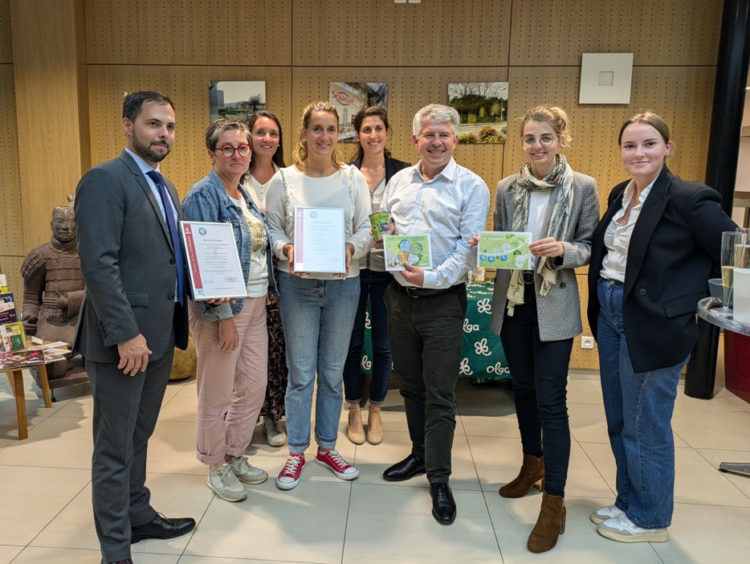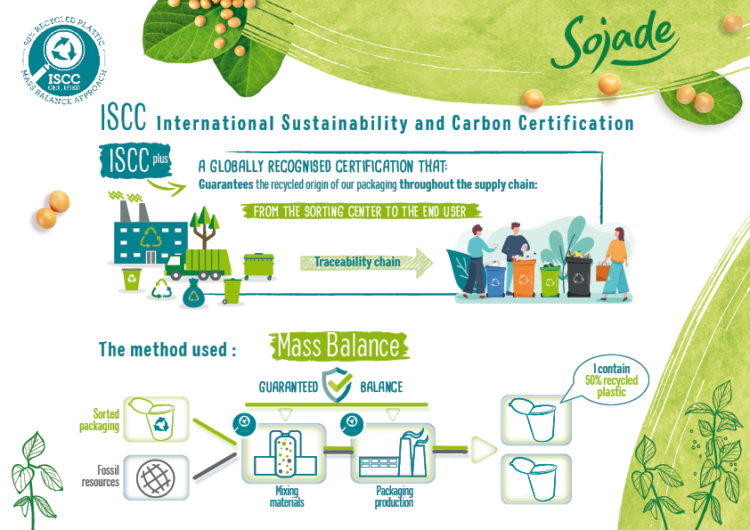
Sojade successfully achieves ISCC Plus certification for the packaging of its 400g and 150g desserts. Companies wishing to obtain ISCC PLUS certification must comply with a set of strict criteria and go through an independent audit process. This is why Sojade turned to the certification body Bureau Véritas. This commitment to environmental sustainability is part of Olga‘s 2035 roadmap, which aims to ensure that 100% of its activities have a positive impact on the environment.

Sojade continues its commitments

Olga became aware very early on of the need to preserve resources by innovating in its production methods. This commitment to people and the planet is deeply rooted in the values of this Breton family business.
In fact, it is a natural part of Sojade’s DNA. And yes, remember! In 2019, Sojade took up the bold challenge of removing the lids from its 400g pots. This was a major first, enabling the brand to do away with 60 tonnes of plastic a year.
This time, Sojade has chosen to support the circular economy. This is in line with its ever-stronger commitment to providing ever more sustainable products. Sojade has been gradually introducing new recycled plastic packaging since October 2024, holders of ISCC PLUS certification. These new 400g and 150g packs are made from 50% RPP (Recycled Polypropylene).

What is ISCC Plus?
ISCC PLUS is an international certification system that guarantees strict sustainability and traceability criteria for the raw materials used in the production of packaging: from the sorting centre to the end user.
It is managed by the International Sustainability and Carbon Certification (ISCC), an organisation that aims to promote sustainability and the reduction of greenhouse gas emissions in supply chains.
Although the new Sojade pots are made from 50% recycled plastic, they meet the same health requirements and are food-grade. What’s more, by using certified materials, Sojade is helping to reduce the amount of virgin plastic of fossil origin. The mass balance approach is at the heart of the process: it facilitates the use of recycled and bio-sourced materials.
This approach rewards the sorting, collection and recycling efforts undertaken for several years now by all French households and local authorities.
Various international regulations and initiatives recognise the ISCC. As such, it is an important tool for companies seeking to meet sustainability requirements.

